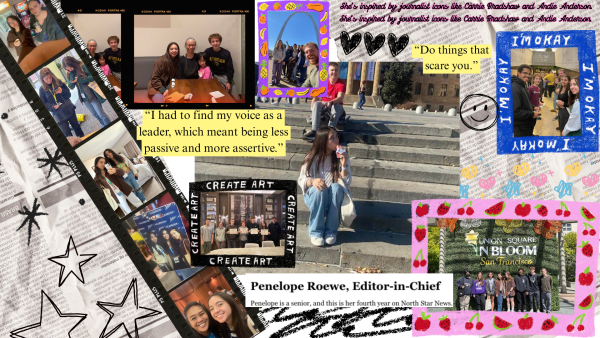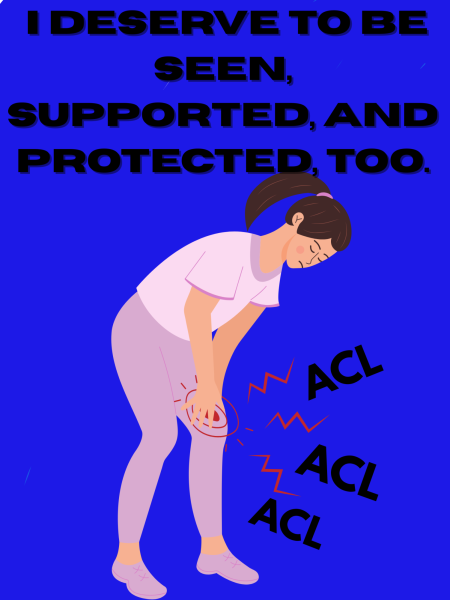Is journalism dying?
A few weeks ago, North Star News went to High School Journalism Day at Northwestern’s Medill School of Journalism. At the beginning of the conference, Medill Dean Charles Whitaker gave a keynote speech about the importance of journalism. While giving the address, Dean Whitaker said something along the lines of, “Often, I tell people I work in a journalism school, and I’ll get a mixed reaction. Most people will go, ‘Journalism? Really? It’s a dying field, you know.’”
This stuck with me. I went home after the conference confused on how anyone could think that journalism was dying. Sure, the print news industry has gone under, due to the increase in digital news consumption, but journalists and online news outlets still exist.
Journalism hasn’t had the best reputation recently. With the whole “Fake News” phenomenon floating around the past few years, it hasn’t given the public the best idea of what journalism is and what journalists do. However, journalism is so much more than people yelling at each other on the news and completely biased headlines flooding our Instagram feeds. When I think about what journalism does for our society, I think of how it impacts people on a global scale.
Journalism is the lifeline of our democracy. Reporters investigate for good reason– to inform the public. Without the facts, we wouldn’t be able to form our own opinions. Our opinions go on to influence who we support in the government, and how our country is run. And although forming our own opinions is incredibly important, listening to the opinions and stories of others can start conversations about issues we’re facing in our own lives.
Journalism is also a community of voice. Some news outlets give just the “objective” facts, but there’s more to journalism than that. Journalism has the power to amplify voices, some of which we might not be able to hear if news outlets didn’t give them the setting to tell their story. Bottom line is, we tend to follow our own beliefs and look only for evidence that backs us up. When we see the stories of others and open our ears to their point of view, we are allowing ourselves some humility to question how we see the world.
“We need to live in an informed society, where there are independent thinkers, otherwise we fall for anything that everybody [ever] told us,” North Star News advisor Jean Ordonez said.
For example, during the very start of the COVID pandemic, I didn’t have much to worry about except for my own family’s health and online school, like many others. Since we were all so sheltered during this time, I didn’t see how other people were dealing with the shut down. But news outlets brought attention to small business owners who struggled with loss of customers, regular civilians who lost their jobs and main income, people who couldn’t even feed their children. It was all so humbling to see how fortunate of a situation I was in– and the news brought attention to these other people through feature stories, news segments, and interviews.
This all being said, in the past few years, the world has seen an exponential spike of untrustworthy news sources, especially with so many people getting their news from social media. According to a research study done by Pew Research Center, 50 percent of adults at least sometimes get their news from social media platforms such as Facebook, Twitter, TikTok, and Instagram.
Social media outlets are definitely not known for the accuracy of information, as many resources are not credible or fact-based. On social media, news also tends to be extremely oversimplified. News stories have many layers and details that can’t be shared over the course of a thirty second clip. A headline on an infographic doesn’t tell all the facts. Misinformation is extremely harmful (think about the news you saw on social media during the COVID-19 virus and vaccine) and ends up creating much deeper social issues, which is a whole other discussion.
However, even though social media continues to ruin the reputation of journalists, we are responsible for our own knowledge of current events. The journalists of our generation are doing their work– traveling the world, telling stories of the silenced, and investigating the truth. We can learn so much about others’ opinions, and more importantly, our own, by staying up-to-date with the news. As distracting as the media can be, it’s the reader’s responsibility and civic duty to learn how to distinguish fact from fiction. It is our job to learn what makes a news source credible.
Journalism isn’t dying. In fact, it’s only getting stronger, with new resources and vessels to communicate. News is more diverse than ever with technology– we can spread stories in seconds to people across the globe. But as a society, we need to make sure journalism thrives. So what can you do to make sure journalism stays alive and well? Educate yourself. Read the news, not just from your preferred network, but from those with opposing viewpoints. Open your mind to others’ stories. Research tips on how you can find the most unbiased news and learn the facts. By staying informed, we can understand all kinds of people, not just in the news and politics, but in everyday life. Journalism has been through a lot, but it’s all we have.

Penelope is a senior, and this is her fourth year on North Star News. She's inspired by journalist icons like Carrie Bradshaw and Andie Anderson....








Ashley Amelianovich • Nov 3, 2022 at 7:58 am
“Journalism isn’t dying. In fact, it’s only getting stronger …” YES!!! I couldn’t agree more. Trustworthy journalism is so important in a democratic society.